|
Books Should Be Free Loyal Books Free Public Domain Audiobooks & eBook Downloads |
|
|
Books Should Be Free Loyal Books Free Public Domain Audiobooks & eBook Downloads |
|
Non-fiction |
|---|
|
Book type:
Sort by:
View by:
|
By: Joseph Devlin | |
|---|---|
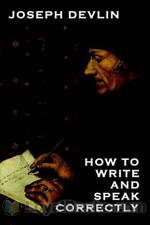 How to Speak and Write Correctly
How to Speak and Write Correctly
A book on improving eloquence, proficiency and grammar in everyday communication. ‘How to Speak and Write Correctly’ is not a manual of the styles to use in speaking and writing, nor is it a manual for grammar. It is a simple, useful book for helping ordinary people in effective communication. It lays down and explains broad rules of communication, further giving useful tips for effective communication. The book also lists common mistakes in communication and offers suggestions on how best to avoid them... | |
By: Jerome K. Jerome (1859-1927) | |
|---|---|
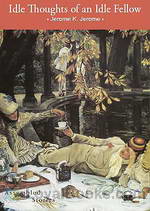 Idle Thoughts of an Idle Fellow
Idle Thoughts of an Idle Fellow
Idle Thoughts of an Idle Fellow, published in 1886, is a collection of humorous essays by Jerome K. Jerome. It was the author’s second published book and helped establish him as a leading English humorist. The book consists of 14 independent articles arranged by themes. | |
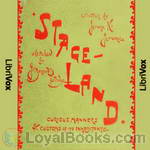 Stage Land
Stage Land
A comic look at the curious habits and customs of the inhabitants of ‘Stage Land’. Dedicated to ‘that highly respectable but unnecessarily retiring individual, of whom we hear so much but see so little, “the earnest student of drama” | |
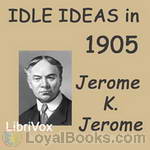 Idle Ideas in 1905
Idle Ideas in 1905
Back in 1905 Jerome K. Jerome shared his thoughts on a variety of subjects, including "Should Women Be Beautiful?", "Should Soldiers Be Polite?" and "Is The American Husband Made Entirely Of Stained Glass?". Every subject is analysed and commented on in the witty and satirical style we have grown to expect from the author. | |
By: Charles Darwin (1809-1882) | |
|---|---|
 On the Origin of Species by Means of Natural Selection
On the Origin of Species by Means of Natural Selection
Considered to be one of the books that changed the world and how we view ourselves, On The Origin of Species by Charles Darwin was met with incredulous horror when it was first published in 1859. The revolutionary, almost blasphemous ideas it described were seen as antithetical to the existing ideas of Creation contained in the Bible and other religious texts. It was mocked, reviled and the author was personally subjected to vicious persecution by the establishment and theologians. In the years that followed its publication, the book became the subject of furious intellectual and social debate... | |
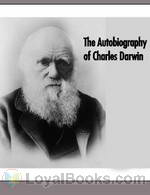 The Autobiography of Charles Darwin
The Autobiography of Charles Darwin
The Autobiography of Charles Darwin is the autobiography of the British naturalist Charles Darwin which was published in 1887, five years after his death. Darwin wrote the book, which he entitled Recollections of the Development of my Mind and Character, for his family. He states that he started writing it on about May 28, 1876 and had finished it by August 3. The book was edited by Charles Darwin’s son Francis Darwin, who removed several passages about Darwin’s critical views of God and Christianity... | |
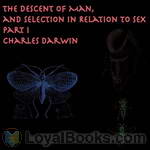 The Descent of Man and Selection in Relation to Sex
The Descent of Man and Selection in Relation to Sex
PART I. THE DESCENT OR ORIGIN OF MAN. Part 1 of 3 of book on evolutionary theory by English naturalist Charles Darwin, first published in 1871. It was Darwin's second great book on evolutionary theory, following his 1859 work, On The Origin of Species. In The Descent of Man, Darwin applies evolutionary theory to human evolution, and details his theory of sexual selection. The book discusses many related issues, including evolutionary psychology, evolutionary ethics, differences between human races, differences between sexes, the superiority of men to women, and the relevance of the evolutionary theory to society... | |
By: Alexander Hamilton (1755/1757-1804) | |
|---|---|
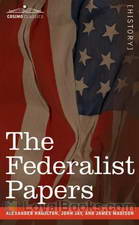 The Federalist Papers
The Federalist Papers
In order to promote the ratification of the United States Constitution in the late 1780s, Alexander Hamilton, James Madison and John Hay wrote a series of 85 articles and essays explaining their reasons to support the constitution. Most of these articles were published in The Independent Journal and The New York Packet and they later became known as “The Federalist Papers.” In reading the articles, one will encounter very interesting issues like Hamilton’s opposition to including the Bill of Rights in the Constitution and why he thinks a Union is better than a Confederation... | |
By: Arnold Bennett (1867-1931) | |
|---|---|
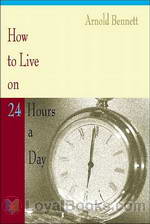 How to Live on Twenty-Four Hours a Day
How to Live on Twenty-Four Hours a Day
This book is a classic piece on self improvement teaching you to live to the fullest. Judging from the title of the book, the reader might expect that the book is a manual on how to manage your time better. Nothing could be further from the truth, this book is a flowery and witty self help book aimed at helping readers improve the quality of their lives, in fact it is one of the firsts of its kind in the world. Bennett describes the twenty four hours in a day as a miracle and that it should be used for the betterment of health, wealth, respect, pleasure and contentment... | |
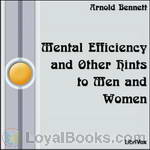 Mental Efficiency and Other Hints to Men and Women
Mental Efficiency and Other Hints to Men and Women
Mental Efficiency and Other Hints to Men and Women is one of the many self help books that Bennett wrote, the most famous of these being How to Live 24 Hours a Day. It is highly readable, amusing and offers wisdom in an extremely palatable form. Bennett's gift for analysis and his knowledge of philosophy and psychology make this book a valuable treasure trove of handy hints to improve our lives. Though it was first published in 1911, it remains as relevant, wise and useful as it did more than a hundred years ago... | |
 Literary Taste: How to Form It
Literary Taste: How to Form It
Arnold Bennett describes a method for enjoying literature, and suggests the contents of a comprehensive library. Chapters 1-10 and 14 describe his method for learning to enjoy literature. Chapters 11, 12, and 13 contain detailed lists of the 337 volumes required to complete a comprehensive library of English works. This reading is from the 1913 version at Project Gutenberg, and so does not contain the revisions made by Swinnerton for the 1939 edition, which included authors of the early Twentieth Century. Swinnerton’s revisions are available from Wikipedia. | |
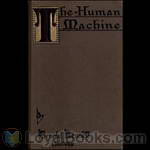 The Human Machine
The Human Machine
Bennett asks us to consider our brains as the most wonderful machine, a machine which is the only thing in this world that we can control. As he writes: "I am simply bent on calling your attention to a fact which has perhaps wholly or partially escaped you -- namely, that you are the most fascinating bit of machinery that ever was."As ever, his prose is honeyed, his thoughts inspired, and his advice as relevant today as when it was written. (Introduction by Ruth Golding) | |
By: The 9/11 Commission | |
|---|---|
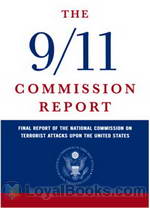 The 9/11 Commission Report
The 9/11 Commission Report
Taking the reader back to the horror and devastation of September 11, 2001, the 9/11 Commission Report by the 9/11 Commission, is the official report that presents the final findings of the committee Krean Hamilton Commission (better known as the 9/11 Commission.) The report reveals not just the events that happened on that fateful day, but also describes the circumstances that led up to it. It analyzes the role of several government agencies in the drama and also pinpoints the lacunae in the system that allowed such events to occur... | |
By: Grenville Kleiser (1868-1953) | |
|---|---|
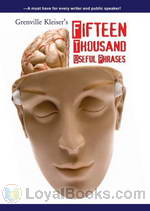 Fifteen Thousand Useful Phrases
Fifteen Thousand Useful Phrases
Fifteen Thousand Useful Phrases is a practical handbook written by Grenville Kleiser. Grenville is known for his writings on humor, positive thinking and inspirational thought. This serves as a handbook of pertinent expressions, striking similes and terms for embellishing speech and literature. This book can be used to improve vocabulary for reading, writing and speaking alike. Through mastery of words, the most powerful and perfect expression of thought can be delivered orally. Choosing the correct words conveys ideas in a crisp and clear way that will hold and audience's attention... | |
By: Wilkie Collins (1824-1889) | |
|---|---|
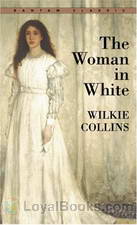 The Woman in White
The Woman in White
Wilkie Collins’s The Woman in White tells the story of two half-sisters, Laura Fairlie and Marian Halcombe who were embroiled in the sinister plot of Sir Percival Glyde and Count Fosco to take over their family’s wealth. It’s considered to be one of the first “sensation novels” to be published. Like most novels that fall into this category, the protagonists here are pushed to their limits by the villains before they finally got the justice they deserved. The story begins with Walter Hartright helping a woman dressed in white who turned out to have escaped from a mental asylum... | |
By: Anicius Manlius Severinus Boethius (480-524/525) | |
|---|---|
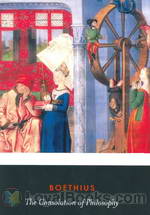 The Consolation of Philosophy
The Consolation of Philosophy
Consolation of Philosophy (Latin: Consolatio Philosophiae) is a philosophical work by Boethius written in about the year 524 AD. It has been described as the single most important and influential work in the West in medieval and early Renaissance Christianity, and is also the last great work that can be called Classical. Consolation of Philosophy was written during Boethius’ one year imprisonment while awaiting trial, and eventual horrific execution, for the crime of treason by Ostrogothic King Theodoric the Great... | |
By: Plato (427-347) | |
|---|---|
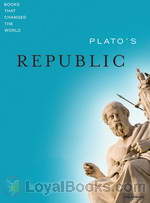 Plato's Republic
Plato's Republic
Plato's Republic is a Socratic dialogue which deals mainly with the definition of justice, the characteristics of a just city state and the just man. Although it was written more than two thousand years ago, many of the ideas and thoughts expounded here are still very much relevant to modern society. This is Plato's best known work and is also considered his most influential especially when it comes to the fields of philosophy and political theory. The Republic is divided into ten books and in each book Socrates discusses different topics from the immortality of the soul to the meaning of justice with his disciples like Glaucon, Thrasymachus, Adeimantus and others... | |
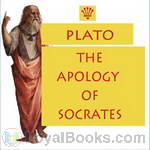 The Apology of Socrates
The Apology of Socrates
More than two thousand years ago, the great Greek philosopher Socrates was condemned to death for making seditious comments against the city state of Athens. His followers and disciples were legion. Ranging from Xenophon, the mercenary warrior and historian of the Peloponnesian War to the scholarly Plato, Socrates was described as the conscience-keeper of the nation, or the “gadfly” who would not let the massive machinery of the state rest in complacence. The Apology of Socrates by Plato was thought to have been written following Socrates trial and death in 399 BC... | |
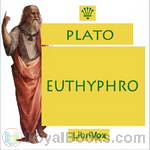 Euthyphro
Euthyphro
Awaiting his trial on charges of impiety and heresy, Socrates encounters Euthyphro, a self-proclaimed authority on matters of piety and the will of the gods. Socrates, desiring instruction in these matters, converses with Euthyphro, but as usual, the man who professes to know nothing fares better than the man who claims to be an expert. One of Plato’s well-known Socratic Dialogues, Euthyphro probes the nature of piety, and notably poses the so-called Euthyphro Dilemma: Do the gods love a thing because it is holy, or is a thing holy because it is loved by the gods? | |
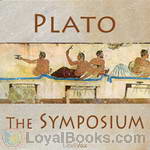 The Symposium
The Symposium
The Symposium (Ancient Greek: Συμπόσιον) is a philosophical book written by Plato sometime after 385 BCE. On one level the book deals with the genealogy, nature and purpose of love, on another level the book deals with the topic of knowledge, specifically how does one know what one knows. The topic of love is taken up in the form of a group of speeches, given by a group of men at a symposium or a wine drinking party at the house of the tragedian Agathon at Athens. Plato constructed the Symposium as a story within a story within a story... | |
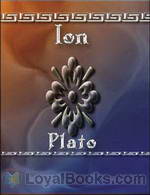 Ion
Ion
In Plato’s Ion, Socrates questions Ion on whether he should really claim laud and glory for his ‘rhapsodic’ recitals of Homer’s poetry. | |
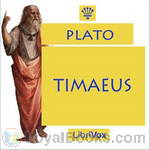 Timaeus
Timaeus
“Our intention is, that Timaeus, who is the most of an astronomer amongst us, and has made the nature of the universe his special study, should speak first, beginning with the generation of the world and going down to the creation of man…” ‘Timaeus’ is usually regarded as one of Plato’s later dialogues, and provides an account of the creation of the universe, with physical, metaphysical and ethical dimensions, which had great influence over philosophers for centuries following. It attributes the order and beauty of the universe to a benevolent demiurge – a ‘craftsman’ or god – fashioning the physical world after the pattern of an ideal, eternal one... | |
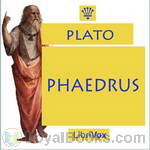 Phaedrus
Phaedrus
“For there is no light of justice or temperance, or any of the higher ideas which are precious to souls, in the earthly copies of them: they are seen through a glass, dimly…”Socrates and his earnest friend Phaedrus, enjoying the Athenian equivalent of a lunchtime stroll in the park, exchange views on love and on the power of words, spoken and written.Phaedrus is the most enchanting of Plato’s Erotic dialogues (capitalised in honour of the god). The barefoot philosopher urges an eager young... | |
By: James Baldwin (1841-1925) | |
|---|---|
 Four Great Americans: Washington, Franklin, Webster, Lincoln. A Book for Young Americans
Four Great Americans: Washington, Franklin, Webster, Lincoln. A Book for Young Americans
Written for children, James Baldwin’s history of Washington, Franklin, Webster, and Lincoln brings these men to life in a way that will be interesting for adults as well. The stories touch on the little humanities of the great men, rather than dwelling on the great works and great events of their lifetimes, without ignoring the latter. | |
By: John Bunyan (1628-1688) | |
|---|---|
 Grace Abounding to the Chief of Sinners
Grace Abounding to the Chief of Sinners
Grace Abounding is the spiritual autobiography of John Bunyan, who also penned Pilgrim’s Progress, perhaps one of the most significant pieces of Christian literature, second only to the Bible. Grace Abounding follows Bunyan’s struggle to find true repentance and forgiveness, his battle with Satan’s temptations of unbelief, his comfort found in the Bible and his overarching victory gotten by the grace of God through Jesus Christ his Son. Readers familiar with Pilgrim’s Progress will recognize... | |
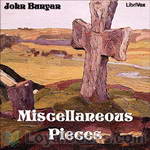 Miscellaneous Pieces
Miscellaneous Pieces
John Bunyan (November 28, 1628 – August 31, 1688), a Christian writer and preacher, was born at Harrowden (one mile south-east of Bedford), in the Parish of Elstow, England. He wrote The Pilgrim’s Progress, arguably the most famous published Christian allegory. In the Church of England he is remembered with a Lesser Festival on 30 August. Bunyan became a popular preacher as well as a prolific author, though most of his works consist of expanded sermons. In theology he was a Puritan, but there was nothing gloomy about him. The portrait his friend Robert White drew, which has often been reproduced, shows the attractiveness of his true character. | |
By: John Milton (1608-1674) | |
|---|---|
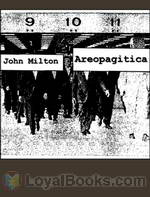 Areopagitica
Areopagitica
A prose tract or polemic by John Milton, published November 23, 1644, at the height of the English Civil War… Milton, though a supporter of the Parliament, argued forcefully against the Licensing Order of 1643, noting that such censorship had never been a part of classical Greek and Roman society. The tract is full of biblical and classical references which Milton uses to strengthen his argument. The issue was personal for Milton as he had suffered censorship himself in his efforts to publish... | |
By: Helen Keller (1888-1968) | |
|---|---|
 The Story of My Life
The Story of My Life
An autobiography of Helen Keller published when the author was still in her early 20's. The narrative reveals how her mind developed and matured until she began her studies at Radcliffe College | |
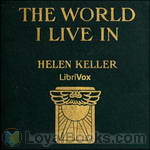 The World I Live In
The World I Live In
The World I Live In by Helen Keller is a collection of essays that poignantly tells of her impressions of the world, through her sense of touch, smell, her imagination and dreams. My hand is to me what your hearing and sight together are to you. In large measure we travel the same highways, read the same books, speak the same language, yet our experiences are different. All my comings and goings turn on the hand as on a pivot. It is the hand that binds me to the world of men and women. The hand is my feeler with which I reach through isolation and darkness and seize every pleasure, every activity that my fingers encounter... | |
By: Benjamin Franklin (1706-1790) | |
|---|---|
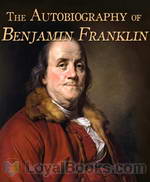 The Autobiography of Benjamin Franklin
The Autobiography of Benjamin Franklin
Inventor, author, printer, scientist, politician, diplomat—all these terms do not even begin to fully describe the amazing and multitalented, Benjamin Franklin who was of course also one of the Founding Fathers of America. At the age of 75, in 1771 he began work on what he called his Memoirs. He was still working on it when he died in 1790 and it was published posthumously, entitled An Autobiography of Benjamin Franklin. The book had a complicated and controversial publication history. Strangely enough, the first volume only was first published in French, in Paris in 1791... | |
By: Confucius (551-479 BC) | |
|---|---|
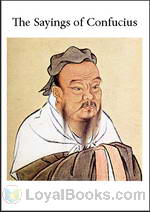 The Sayings of Confucius
The Sayings of Confucius
A treasure trove of wise and pithy sayings, reflections on education, family values, the ideal human being, life and living, politics, art, culture and timeless wisdom, The Sayings of Confucius is indeed an invaluable addition to your bookshelf. Ever since Chinese literary works first began to be translated into European languages, the works of the legendary Chinese philosopher and teacher Confucius, who lived in present day Qufu in the Shandong province of China, more than two thousand years ago, have held universal appeal... | |
By: Mara L. Pratt | |
|---|---|
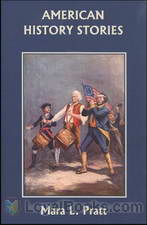 American History Stories
American History Stories
A children’s book detailing early American history from the Norsemen to the Revolution, meant for educational use. (Description by the reader) | |